The Double Ordeal of Being a Woman in a Venezuelan Prison
Cruel treatment against political prisoners are only a small part of the policy of horror in prisons against women and the LGBTQ community.


Photos: Cristián Hernández
A Spanish version of this piece was originally published in Cinco8.
On January 23rd, while Juan Guaidó swore his oath of office in Caracas, people in Barquisimeto were protesting cooking gas shortages. Near the protest, Aidysmar Figueroa, a 20 year-old graphic design student, was going with her cousin to a soccer game, when National Guard officers (GNB) grabbed her by the hair and took her to a GNB garrison, along with three minors.
She had a court hearing three days later, where she was charged with seven offenses, including disrupting the public order, resisting authority, and using a minor to commit a crime. Foro Penal Lara took her case, already on procedural delay; her lawyer Abrahan Cantillo, Foro Penal coordinator in Barquisimeto, says that “all of her rights were violated: she was accused without solid evidence and without even stating the damages to public property that she allegedly caused.” Aidysmar was released on July 19th, after the 7th Control Tribunal ordered her to show up at court every 30 days for the next three years.
During her six months arrested, she shared a cell with 20 women and slept in a hammock made out of bed sheets. Magaly Huggins, a criminologist and research coordinator for NGO Una Ventana a La Libertad, explains how this affects the mental health of prisoners, exposed to violence and indignity: “Jails have become human being deposits, where political prisoners are usually grouped with common prisoners, women share spaces with men and officers have little training.”
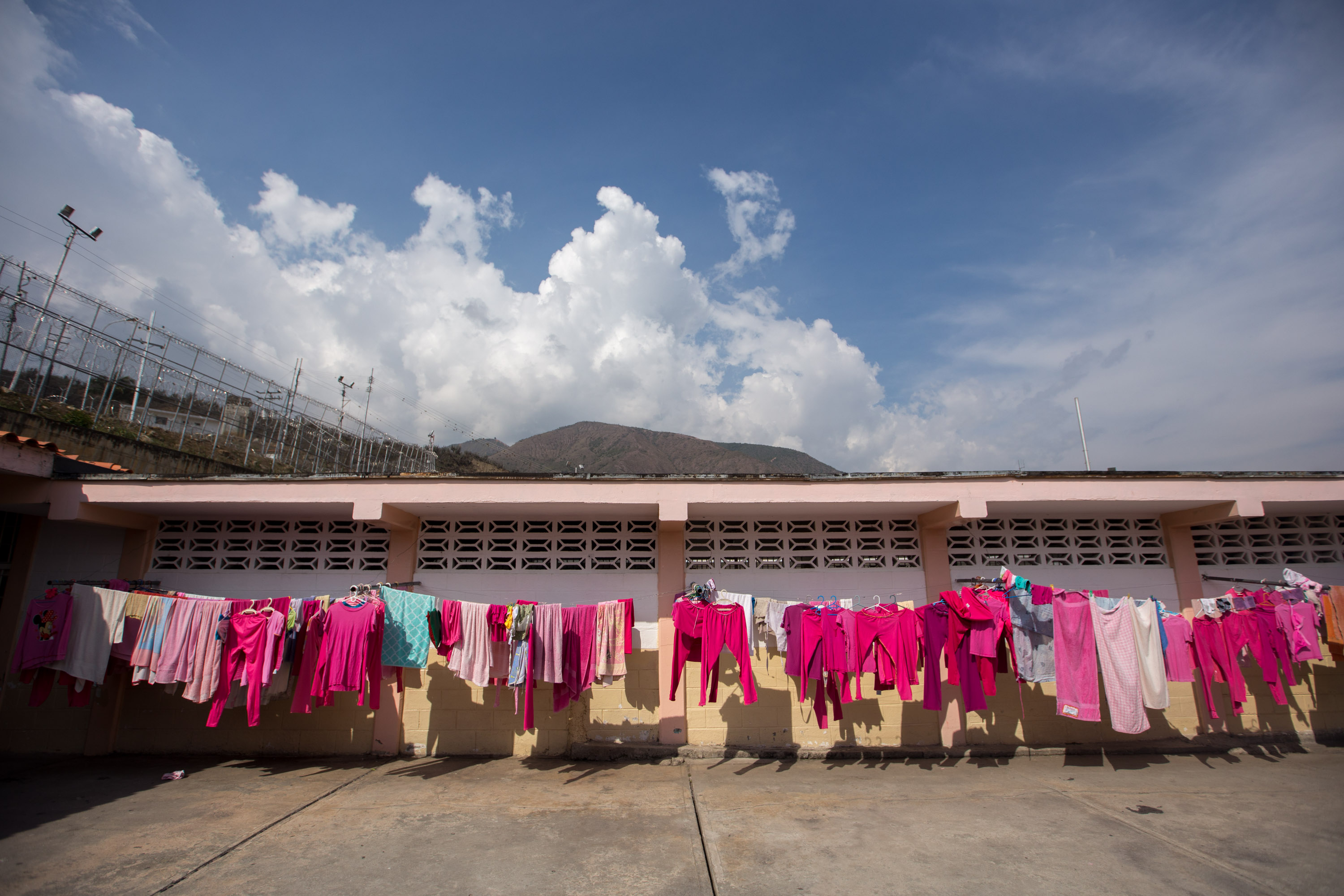
Female block of Venezuela’s General Penitentiary. Photo: Cristian Hernández.
Aidysmar only was allowed to one 15 minute visit per week. Her mother and grandmother had to take off their clothes and jump, naked, in front of soldiers. This kind of humiliation and the prohibition of visits is part of a pattern for political prisoners, whether they’re public figures, like judge María Lourdes Afiuni, or non-public individuals, like Aidysmar, who seem to be the victims of a minimum-prisoner quota. No visits while detained in Venezuela means more than not seeing your loved ones: it means detainees will not get food, drinking water, clothing, meds or essentials like menstrual pads, all brought to inmates by their visitors. Not allowing them their regular visits means they’re under siege inside the prison they already endure.
Discipline Through Sexual Abuse
Aidysmar’s case is one of many: out of 550 political prisoners reported by Foro Penal on July 31st of 2019, 62 were women.
“I didn’t see the sunlight for two months,” remembers Sairam Rivas of her time in El Helicoide, SEBIN’s jail in Caracas, after being arrested at the Alfredo Sadel Sq. camp student protest, in 2014. “We suffered multiple violations of our human rights,” she says. “Psychological violence, intimidation, threats, they forced us to be naked on the first day. We had to sleep and go to the bathroom handcuffed to other inmates. My dad had terminal cancer while I was in jail, the guards knew it and used it to make me feel abandoned. But everything’s gotten worse since 2014; There are more arrests without warrants, disappearances and the reports of cruelty and torture are more frequent.”
According to Foro Penal, from January 1st, 2014, to July 31st, 2019, there’s been 15,133 arbitrary arrests, 848 civilians have been presented in military courts, and there’s a historical cumulative of 3,191 political prisoners (2,061 have been released under diverse conditions). This group of lawyers defending political prisoners pro bono say that the process and detentions are irregular: “Starting with the terrible prisons, these women have been denied access to justice and their right to health, among other guaranteed human rights established in international treaties and in the laws of our country.”
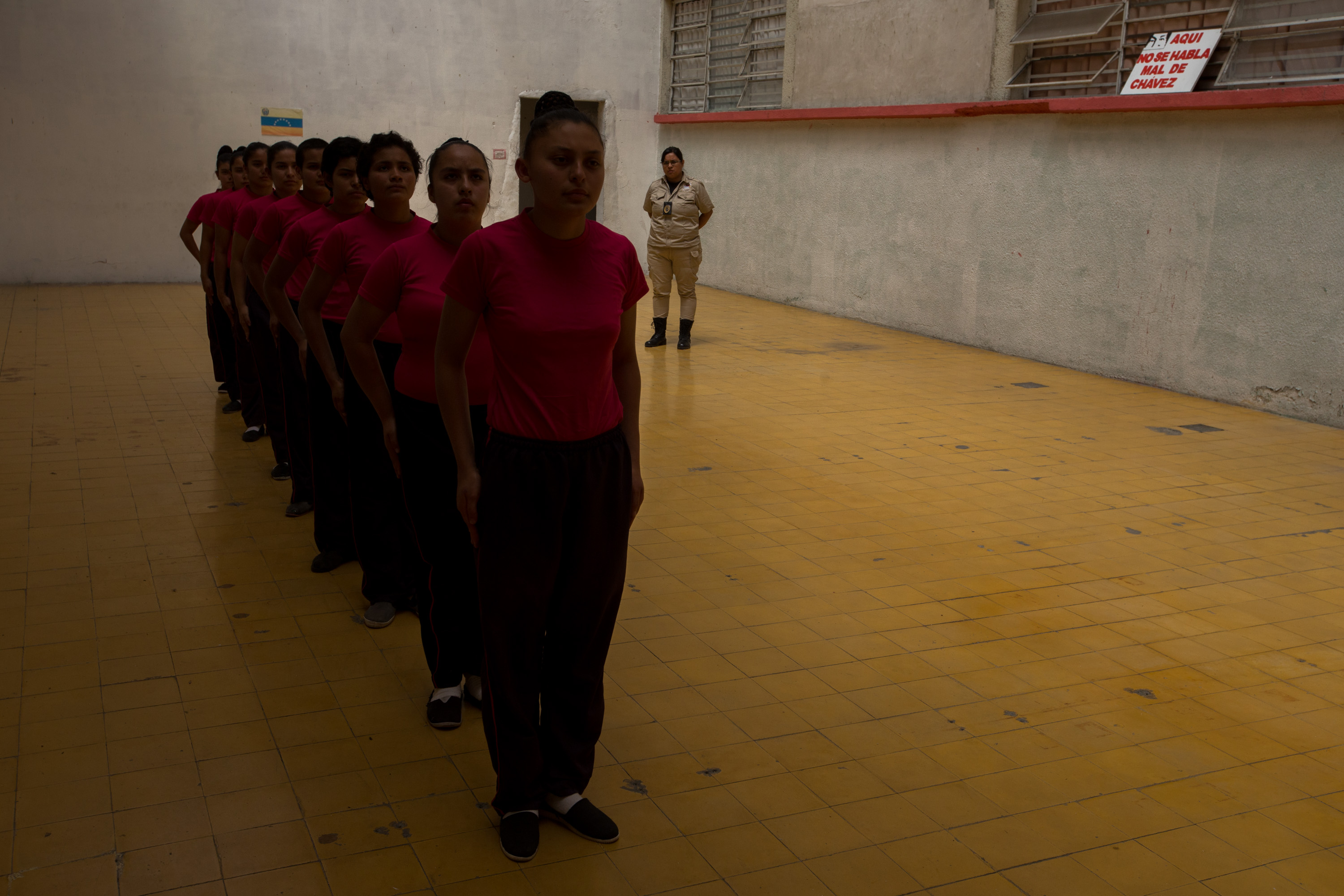
Female block of Venezuela’s General Penitentiary. Photo: Cristian Hernández.
Former Chilean President and UN High Commissioner for Human Rights, Michelle Bachelet, published her report on July 4th, where she describes the persecution against opponents of Nicolás Maduro’s regime. But the Mujeres Al Límite 2019 (Women on the Edge) report also identifies two dynamics in the context of the humanitarian emergency and repression against women: officers take advantage of the vulnerability that results from extreme poverty, and the sexual attacks used to intimidate protesters or people detained in protests, constituting “sexual violence for political reasons.”
According to Foro Penal and Human Rights Watch, out of 88 documented cases of severe human rights violations in the context of protests between April and September 2017, 53 included sexual abuse—cruelty, threats, forced nudity—or rape. This was condemned in a document signed by over 95 civil society organizations.
“Most female political activists are victims of verbal violence, rape threats and humiliation before they’re detained,” says Magaly Huggins, from direct observation. “Once in jail, all of their rights are violated.”
But this situation goes well beyond what Venezuelan female political prisoners must endure.
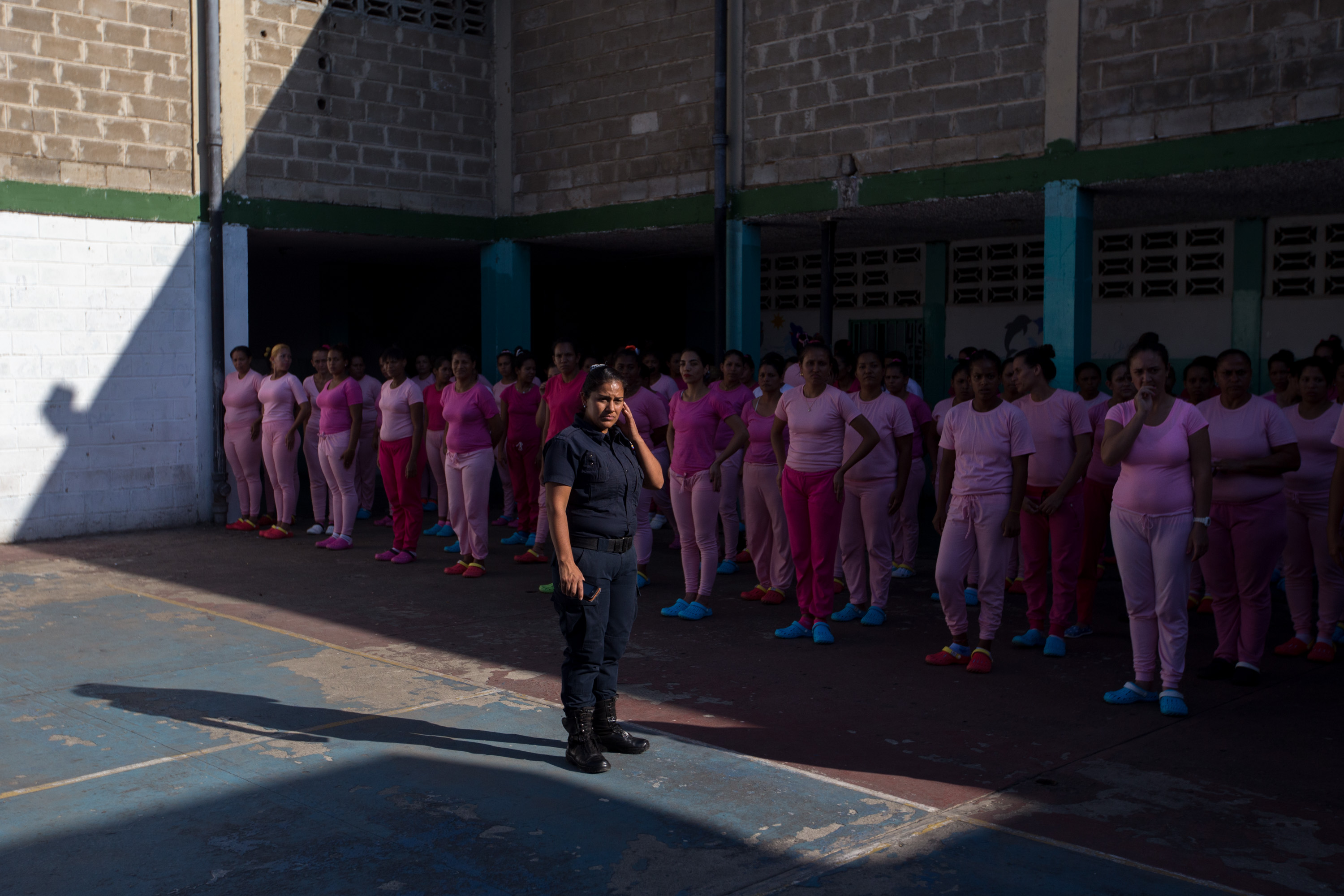
Female block of Venezuela’s General Penitentiary. Photo: Cristian Hernández
Sex for Basic Rights
Usually, Venezuelan women don’t get medical attention during pregnancy while in jail, and they’re not allowed to be accompanied by their children until they turn three years old, as stated in our laws. Many of those pregnancies are the product of rape or other forms of prison abuse.
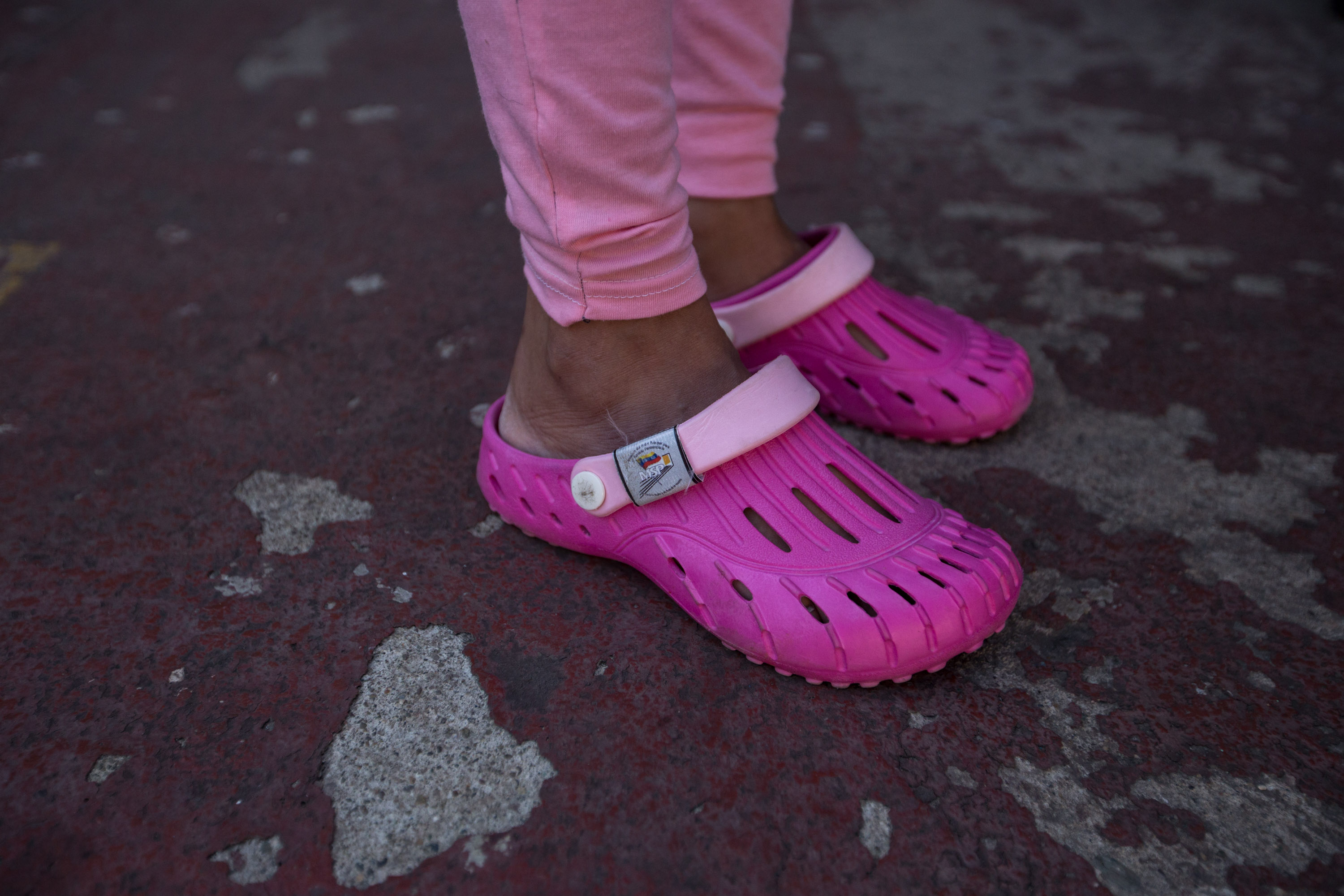
Female block of Venezuela’s General Penitentiary. Photo: Cristian Hernández.
The collapse of the economy and our institutions worsens the mistreatment culture. There’s a chapter on Bachelet’s report about the impact of the humanitarian crisis on Venezuelan women, mentioning dozens of testimonies by prisoners who survive by exchanging sex for food with GNB officers. María José González, director of Cáritas Los Teques and nun at the female detention center “Instituto Nacional de Orientación Femenina” (INOF), has said that many prisoners at the Miranda jail have sex with officers in exchange to be driven to their court hearings.
Pleas and complaints are unheard by the authorities, and the appropriate protocols for sexual violence are ignored. A Una Ventana a la Libertad report from May 2019 states that women are 7% of the prisoner population in Venezuela, and this percentage contributes to how little information is available at home or abroad about them. “Inmates have become the most invisible when it comes to violations of women’s rights in Venezuela,” warns Huggins.
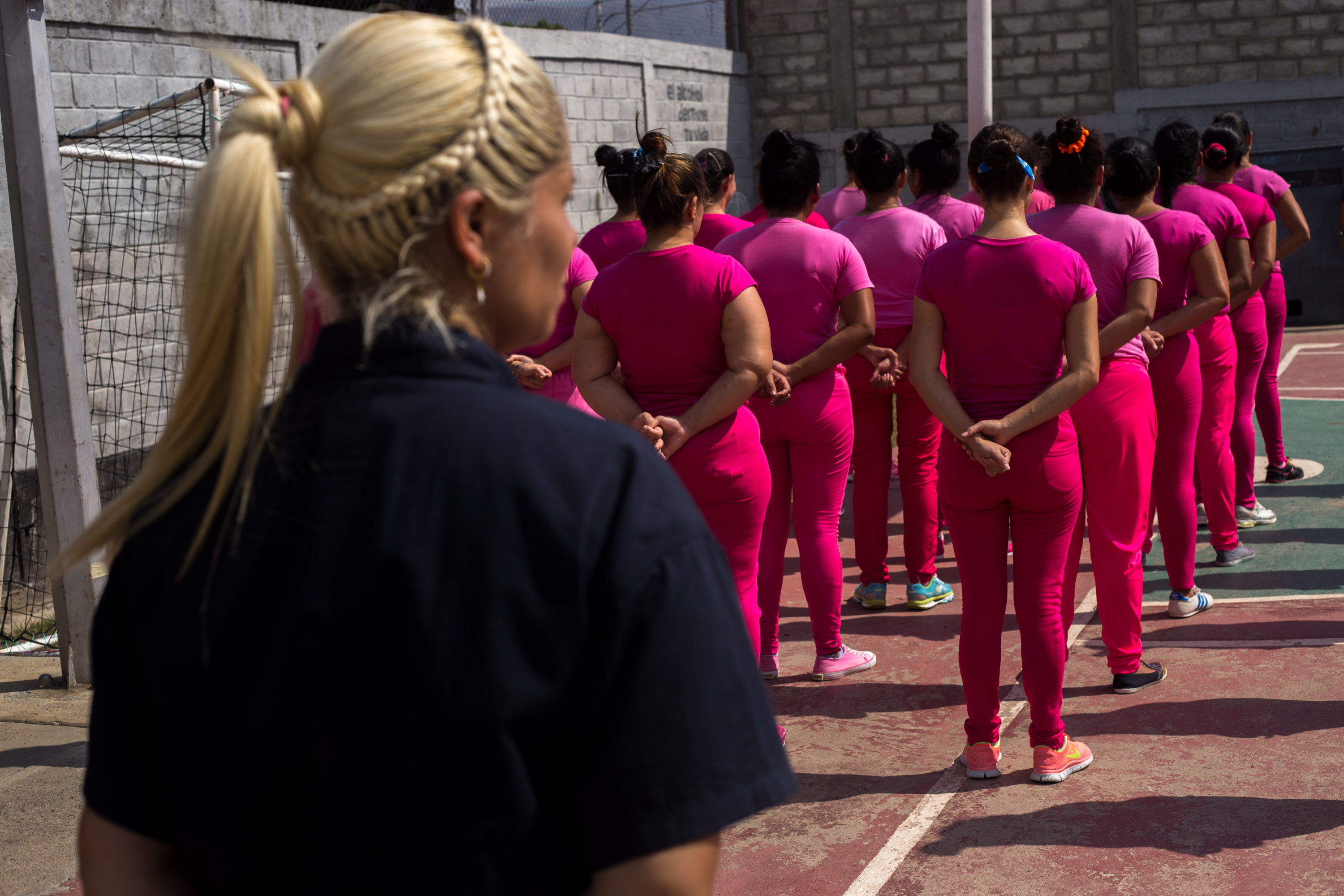
Female block of Venezuela’s General Penitentiary. Photo: Cristian Hernández.
There’s an even more unseen drama: the cruel treatment of LGBTQ inmates. These cases have an even worse chance of being denounced and rectified, because officers don’t even think that sexual violence against them is a crime. Instead, it’s considered a “disciplinary measure” against their sexual orientation or gender identity.
Caracas Chronicles is 100% reader-supported.
We’ve been able to hang on for 22 years in one of the craziest media landscapes in the world. We’ve seen different media outlets in Venezuela (and abroad) closing shop, something we’re looking to avoid at all costs. Your collaboration goes a long way in helping us weather the storm.
Donate




